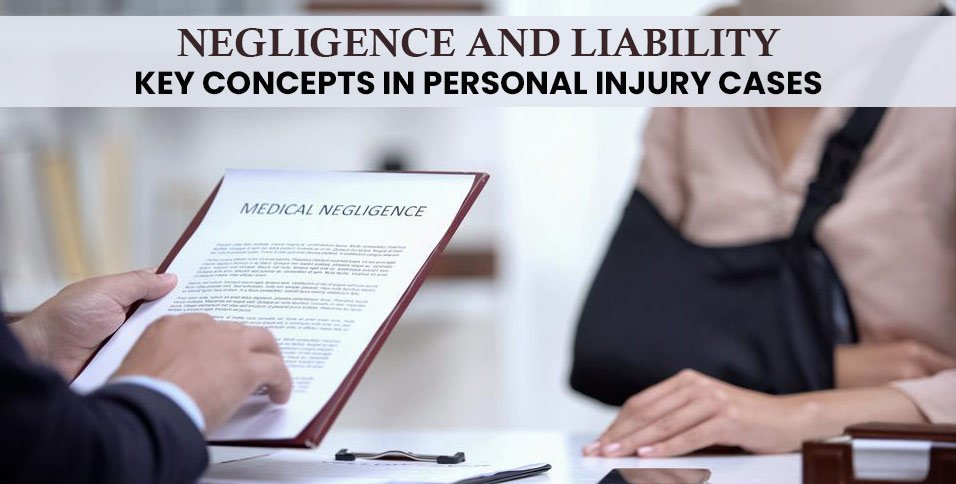Personal injury cases can be challenging, especially when understanding ideas like negligence and responsibility. These legal concepts are crucial for victims seeking justice, notwithstanding their complexity.
This blog aims to clarify these terms and discuss their significance about personal injury litigation.
Negligence
Carelessness is a significant factor in personal injury lawsuits as it frequently causes harm. Even if it was not the goal, harm might arise when carelessness is present. Four essential aspects need to be shown to establish negligence:
- Duty of Care: The defendant must owe the plaintiff a legal duty of care. For example, a driver must operate a car safely to avoid accidents and the harm that follows.
- Breach of Duty: Evidence of the defendant’s negligence must be presented. This might include neglecting to keep your property safe or texting while driving.
- Causation: The defendant may be held accountable for damages if there is a clear link between the plaintiff’s harm and the defendant’s violation of duty. It must be shown that the defendant’s acts and the injury caused were directly related.
- Damages: The plaintiff must painstakingly record and prove the different damages they have suffered to win.
Duty Of Care
The idea of a duty of care is central to every lawsuit involving personal injuries. According to this idea, people and organizations have a legal duty to act sensibly and responsibly to protect others from damage.
For example, while property owners are responsible for maintaining secure facilities, drivers must follow traffic regulations and operate their cars safely. In the event that someone violates their duty of care and you suffer harm as a result, you can be eligible for damages.
Navigating the unique aspects of duty of care can be challenging. It’s best to understand different aspects of your case with an unbiased law explanation site. It’s best to explore ConsumerShield for your case.
Liability
In personal injury cases, liability refers to the party’s legal obligation to pay for the damages incurred. Demonstrating carelessness is closely related to establishing responsibility.
If the defendant’s carelessness is established, they are held accountable for the plaintiff’s losses and related injuries. In addition to people, organizations, employers, and governmental bodies may also be held liable.
Statute of Limitations
Time is important in personal injury cases, thanks to the statute of limitations. The statute of limitations applies to bringing a lawsuit following an injury. Personal injury claims have a three-year statute of limitations from the date of the occurrence.
Your case may be dismissed if you don’t file a lawsuit or reach a settlement within this period. You should speak with a personal injury attorney as soon as possible to secure the best result for your case since keeping records is essential to your assertion.
Shared Fault and Comparative Negligence
It’s important to remember that sometimes both sides may have some of the blame. Laws pertaining to comparative negligence assign damages according to each party’s relative degree of fault. The plaintiff’s degree of fault directly affects the compensation decrease.
Understanding the ideas of negligence and responsibility is crucial for personal injury lawsuits. A strong foundation creates a compelling case and secures just recompense in these cases. With the help of knowledgeable legal counsel, you may successfully manage complicated injury cases and get the compensation you are entitled to.
Remember, quick action for your case is the best approach to navigate through the key concepts of a personal injury case. All the best!
Also Read: Recovering Compensation For Lost Future Earnings In Personal Injury Cases















